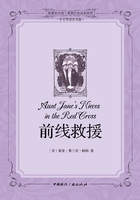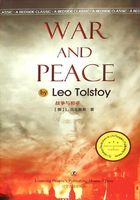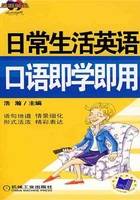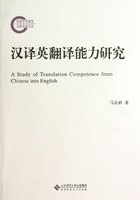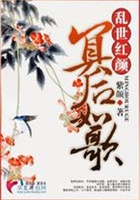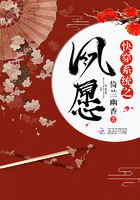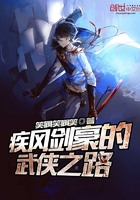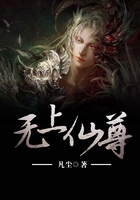This show of destruction outraged the British, who in June of 1840 launched the first Opium War, a two-year campaign against China. The Qing fleets were no match for the ships and guns of the British navy. Guan Tianpei gave his life for his country, while Chen Huacheng, commander of the Qing forces in Jiangnan province (now Jiangsu province, Shanghai Municipality and Anhui province), died in battle. The Manchu nobleman Qishan sued for peace, while the forces of his fellow nobleman Yijing were annihilated in battle, and Yishan and other Manchu nobles like him waved the white flag of surrender. The British would eventually attack and occupy Guangzhou, Xiamen, Dinghai (now the city of Zhoushan in Zhejiang), Ningbo, Wusong (then a separate port, now part of Shanghai), Shanghai, and Zhenjiang, culminating with their menacing of Nanjing on August 29, 1842.
The Daoguang emperor first adopted a blasé attitude, claiming that the British forces would collapse at the first blow. After the Qing were routed, his weak, fickle personality caused him to cast about frantically for a solution, without the slightest semblance of a plan. At the urging of the court's pro-surrender faction, he had prominent pro-war generals such as Lin Zexu, Deng Tingzhen, Yang Fang tried and demoted. Lin Zexu was stripped of his titles and "sent to Yili, to make an atonement." In parting with his wife and children, Lin penned a famous line of poetry: "I live and die for my country, regardless of my own fortune or misfortune." Deng Tingzhen was also dismissed on a pretext, and was also banished to Yili, in China's deserted far northwest.
The Daoguang emperor turned again to members of the surrender faction—people such as Mujangga, Qishan, Yishan, and Keying—searching for a compromise that would bring the war to a halt, sending Keying and Yilibu, another Manchu nobleman, with an imperial mandate on a flying journey towards Nanjing. The two eminent figures did not negotiate, but rather accepted entirely the "terms of peace" dictated by the British.
On August 29, 1842, on board the British naval vessel HMS Cornwallis, Keying, Yilibu, and Sir Henry Pottinger, the British representative on the scene, signed the first of modern China's humiliating, sovereignty-forfeiting unequal treaties, the Treaty of Nanjing.
The treaty consisted of thirteen sections, the most important of which were: Section One, which ceded Hong Kong to the British; Section Two, which opened the five "treaty ports" of Guangzhou, Xiamen, Fuzhou, Ningbo, and Shanghai; and Section Three, in which China was forced to pay twenty-one million silver dollars in reparations for opium, military expenditures, and commercial debts.
It was the British who had invaded China, and yet it was China that was forced to cede territory to the British, to pay reparations, and to meekly offer up the nation's sovereignty and silver. This was the first stock clamped over the heads of the Chinese people. But China's degradation and humiliation had just begun.
During the 19th Century, Britain was the earliest country to undergo an industrial revolution, becoming the first global capitalist power, later developing into the world's most powerful colonial empire. At the empire's peak, the British Isles, covering only 244,000 square kilometers, had invaded and occupied colonies covering an area of more than a hundred and forty times the size of the home islands. Every continent outside of Antarctica hosted British colonies: Canada, Australia, New Zealand, India, Myanmar, Pakistan, Malaysia, Singapore, Bangladesh, Sri Lanka, South Africa, Cameroon, Tanzania, Zimbabwe, Uganda, Mauritius, Mozambique, Cyprus … even parts of the United States were once British colonies. At the eve of the First World War, British control extended over a quarter of the earth's surface. Each colony seized by the British was accompanied by a cruel invasion and frenzied plundering.
The great powers of the world had long looked covetously upon China, the wealthy giant of the East. But the people of China, rejoicing in their peaceful prosperity, had shut themselves off from foreign contact, ignoring the rapid rise of outside powers, blissfully unaware of the dangers of foreign invasion. Because of this, outside powers called China "the sleeping lion" . Seeing Britain effortlessly lop off a hunk of the lion's flesh, with the lion powerless to resist, these outside powers rushed to follow Britain's example. The signing of the Treaty of Nanking opened Pandora's Box, with a parade of rapacious foreign powers dining upon the Chinese people's flesh.
China became a primary source of plundered wealth for foreign powers, and the site of their wars over colonial partitions.
From 1840 to 1842, Britain launched an invasion of China, known as the First Opium War.
From 1856 to 1860, a joint British-French force launched a second invasion of China, known now as the Second Opium War.
From 1883 to 1885, France launched yet another war of invasion, the Sino-French War.
From 1894 to 1895, Japan invaded China in the first Sino-Japanese War.
And from 1900-1901, the combined forces of eight countries invaded China yet again.
Each one of these wars ended in defeat for China. The impotence and corruption of the Qing court, bereft as it was of strong armed forces, meant it could only pare off piece after piece of the country's flesh, offered in supplication to foreign powers. In the space of a hundred years, the Qing court was forced to sign more than a thousand treaties of all stripes with every country imaginable. Each of these treaties demanded territory and reparations, humiliated the country, and stripped it of its sovereignty.

